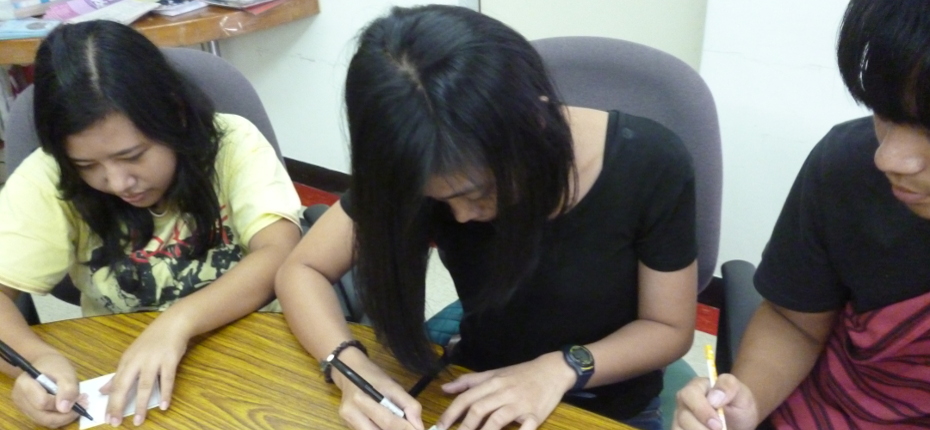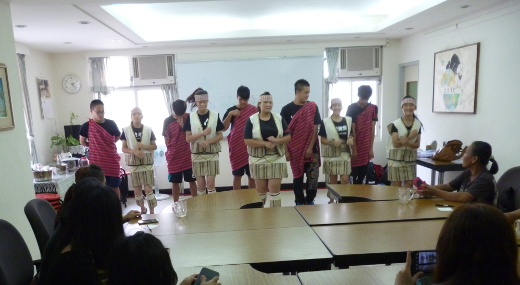
Given that they had no common language and that they were much younger, the Tayal youth were initially very shy and nervous, but they plucked up the courage to perform Tayal songs and dances. The migrant workers were very happy to see the performances, which were new to them. Many were greatly comforted by the show because they are usually very busy with domestic work and feel slighted and psychologically hurt.
The youth also taught the migrant workers Zentangle, teaching them one-on-one the easy-to-learn, relaxing, and fun way to create beautiful images by drawing structured patterns. They taught them in silence, by example, and found their students to be quick learners. With each drawing, the migrant workers began to relax and forget the sorrows of homesickness, the fear of not finding a suitable employer and the taste of the fruit of injustice. Seeing how creative their students were, the Tayal youth had a rare sense of achievement. Even more surprising was that Tayal food and Southeast Asian drinks satisfied both groups.

There are officially around 600,000 migrant workers in Taiwan, hailing from Thailand, the Philippines, Vietnam and Indonesia. The Indonesians are the largest group, numbering around 240,000. Of this number, 180,000 are domestic caregivers. Meanwhile, there are around 530,000 indigenous people in Taiwan from more than 16 tribes, each with its own language and culture. Both the indigenous people and migrant workers are on the margins of society, even sharing some common traditions. The Jesuit work Rerum Novarum Centre in Taipei serves both groups.






